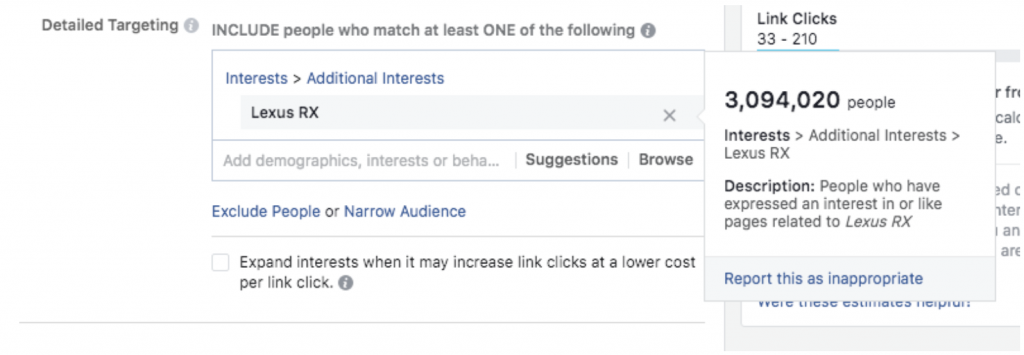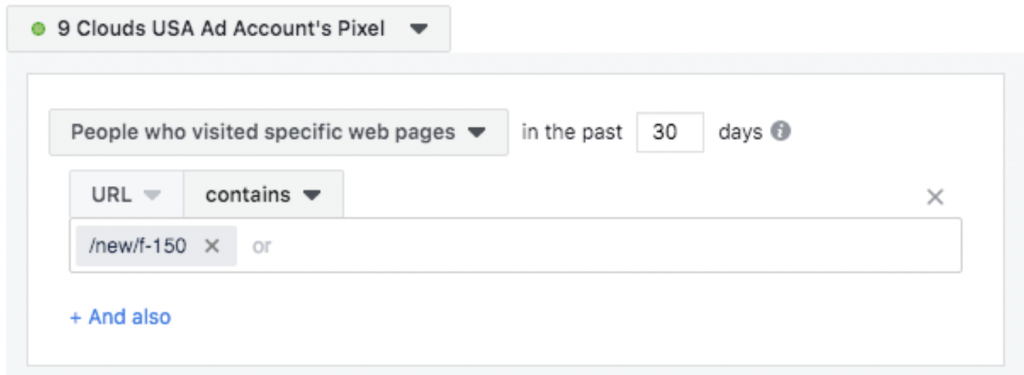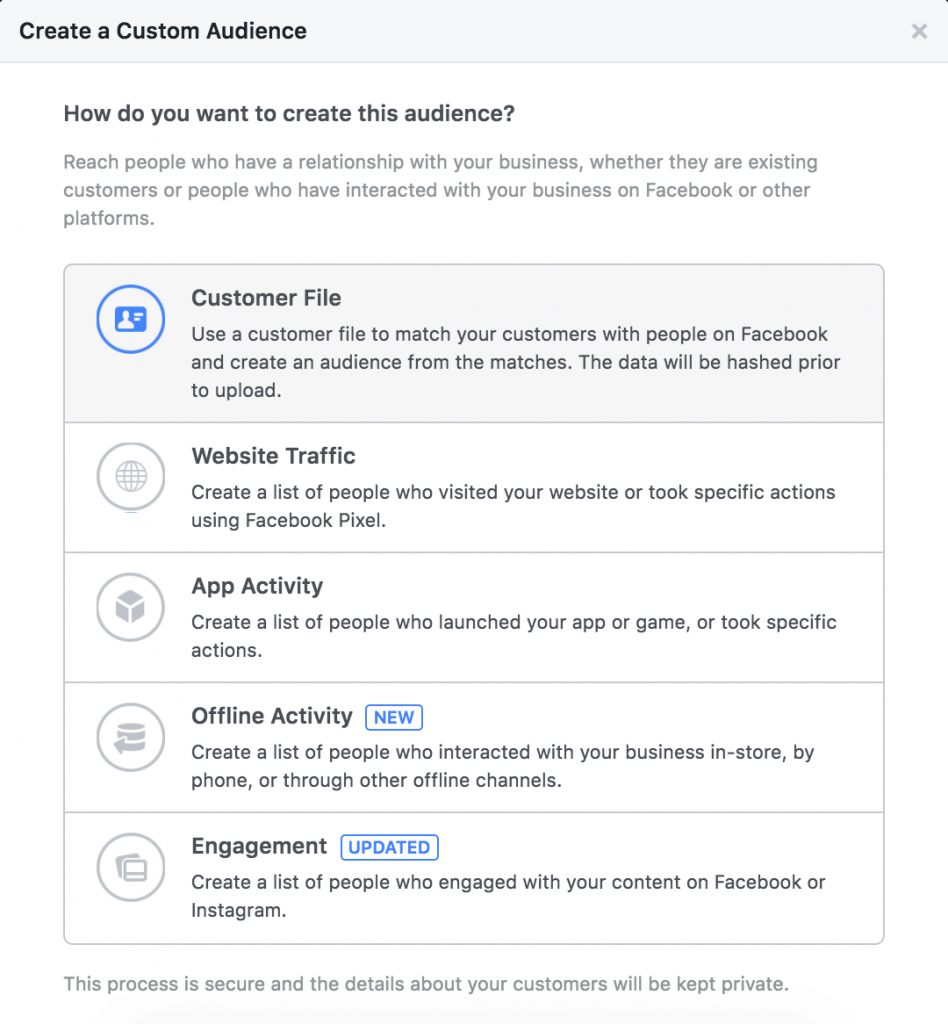
What Facebook Ending Partner Categories Targeting Means For Dealers
Update: Since publishing this post, we’ve come out with a few more resources to help you navigate the world of Facebook advertising without the help of third-party data:
- [Blog post] “The Sky Isn’t Falling: What’s Next for Third-Party Data Targeting on Facebook”
- [Blog post] “Advertise Like Canada: How Dealerships Can Overcome Facebook’s Data Limitations”
- [Webinar] “Tips from Canada: How to Run Your Facebook Ads Without Third-Party Data”
- [Case study] “North Dakota Ford Dealer Finds Success with Facebook Lookalike Audiences”
Be sure to check out all four of these resources for the most recent info and tips on Facebook targeting for auto dealers!
We learned last week of some significant changes coming to the Facebook advertising platform.
In a statement Wednesday night, Facebook announced it “will be shutting down Partner Categories” over the next six months. Partner Categories are the ad targeting parameters made possible by third-party data providers.
But there’s no need to panic! We’ve been looking into the changes, and we’re confident that even if Facebook does go through with it (some of us are skeptical), there will still be a slew of excellent tactics for auto dealers to use on the social network.
Here’s what every auto dealer should know about the changes to Facebook’s Partner Categories targeting.
Facebook’s Privacy Crisis
First off, Facebook is definitely still going to be an incredible network for reaching prospective customers. It certainly won’t take away your ability to target an audience completely — after all, targeting is Facebook’s business model!
That said, Mark Zuckerberg and his team are in hot water. Facebook has been in the news a lot lately.
The company is reeling from the Cambridge Analytica story from the New York Times. Basically, a data firm gained access to several million Facebook users’ private data.
Now, Facebook is trying to mitigate the crisis by removing third-party data from its ad targeting. It’s hoping to appear proactive on the privacy front and win back the faith of disenfranchised users.
The odd part of the move is that Facebook is booting organizations that were sharing data with Facebook advertisers, while Cambridge Analytica was on the opposite end of the platform — taking out data generated by Facebook and using it to target users.
Here’s what our Facebook representative had to say about the matter:
“We believe both first- and third-party data should be held to the same standard — advertisers must ensure that proper consent has been obtained for the use of the data. We will allow advertisers to use third-party data to create audiences on Facebook; however, we will require all advertisers to represent and warrant that proper consent has been obtained for the use of any data uploaded to create a Custom Audience.”
What Are Partner Categories?
Facebook Partner Categories are targeting parameters made possible by third-party integrations of data. Currently, this allows Facebook advertisers to hone in on workers in certain industries, people in different income brackets, or specific automotive audiences based on public registration records.
For example, a dealership could currently show a relevant Facebook ad about F-150s to someone who had purchased an F-150 (or Silverado, Tundra, etc.) a few years ago.
But let’s be clear: advertisers don’t know your identity — they simply rely on Facebook’s connected data to include you in certain audiences (such as truck owners who purchased two or more years ago).

Third-party data providers currently connect this public registration data to Ads Manager, Facebook’s advertising tool. Facebook, in turn, gives these data providers a cut of any proceeds from ad revenue whenever their data is used by the advertiser.
Again, this is pretty different from what Cambridge Analytica was doing. Partner Categories employ data that third parties bring to Facebook ad target sets, while Cambridge Analytica was gathering the private data that Facebook users provided to Facebook.
What This Means for Your Dealership
More information about these changes may come out later, but here’s the immediate stuff your dealership marketing department needs to plan for.
Until June 30, 2018, you won’t see any changes in Ads Manager targeting related to this announcement.
But you have only from now until then to create Facebook ad campaigns that use Partner Categories targeting. After June 30, any existing campaign that uses the automotive Partner Categories can continue to run until October 1.
So, you might want to set aside some time this spring to build some general new and used vehicle campaigns in your Ads Manager that you can budget through the early fall. If you pull that off, you’ll box out any less-proactive competitors throughout the summer.
But it’s not enough to just use the Partner Categories as much as possible between now and October 1. Advertisers need to experiment with other targeting. In the event that Facebook really does do away with Partner Categories, you don’t want to be without other targeting options come October.
As Facebook advertising expert Jon Loomer put it, “Rely less on what you’ve always done and try something different.” It’s better to experiment now before you’re out of options.
After October 1, Facebook expertise will become wickedly important. It’ll be harder for one person at your store to just hop into Ads Manager and mark targeting as “all shoppers in-market for a new Nissan or Subaru.”
For an example of how to move metal on Facebook without Partner Categories, it helps to look north.
Why Canada Sets a Good Example for the U.S.
Registration data is currently not available in Canada, and data privacy laws are notoriously strict north of the border. Because of that, Canadian dealers and agencies have had to use other tactics to reach their core audiences.
9 Clouds has been working with dealerships from British Columbia to Nova Scotia for years, and we’ve always been able to find the right audience with the right message, even without the help of Partner Categories.
It might just start to take a little more finesse here in the States.
Here are three of the key tactics we’re already employing for Facebook ads in Canada that American dealerships will want to brush up on before summer.
1. Interest-Based Targeting
. . . AKA people whom Facebook knows to be interested in, say, the Lexus RX.
As opposed to U.S. ads, which would rely on registration data, these “interest-based” categories are based on people who simply express interest in these products. Interest might be shown by liking a topic’s page, liking several posts about a topic, or by frequenting webpages about a topic on a website that has the Facebook tracking pixel installed.

2. Retargeting
. . . AKA people who visit your website, which must have the Facebook pixel properly installed in order to track visitors.
For example, you can show SUV ads to anyone who visits your SUV pages, trucks ads to anyone who visits your truck pages, service ads to service visitors, etc.

3. Custom Audiences
. . . AKA people in the dealership’s own customer relationship management system (CRM).
In addition to its own targeting database, Facebook also allows advertisers to upload a list of their own contacts (known as a Custom Audience), so they can either target that list or target an entirely separate group of people who share similar characteristics (known as a Lookalike Audience). Changes are coming here, as well, which we’ll explain in just a bit.
As Canadian dealers know, these Custom Audiences are an incredibly powerful alternative to the ultra-targeted audiences based on vehicle registration records in the U.S.

When it comes to data privacy, Canada leads the charge. Tactics like these will become more important to U.S. advertisers as policies change at Facebook.
Now, please note that this is how Custom Audiences have worked in the past. As you’ll see in the next section, this tool may be seeing some changes soon, too.
Facebook Is Regulating Custom Audiences, Too
In addition to shutting down Partner Categories, Facebook is also changing how it regulates the use of Custom Audiences within Ads Manager.
Custom Audiences have been available to advertisers since 2012. Dealerships have been able to upload lists of leads or customers directly into Facebook and target either those lists themselves or separate Lookalike Audiences based on those lists.
As reported by TechCrunch, Facebook is planning to launch a new Custom Audience certification tool, which demands that marketers guarantee the validity of their intent. Marketers will need to prove that the contact information was rightfully attained with proper consent.
It’s still unclear how this system will operate or how much work will go into getting certified.
However, if one thing is certain, it’s that we’re on the path to better permission-based campaigns — and, in turn, a better experience for everyone on Facebook.
At 9 Clouds, we’ve always been able to find the right audience for automotive marketing. We were able to target auto leads before we had additional data from Partner Categories, and we’ll be able to again.
We’ll be sure to have some great resources on new Facebook strategies for you to use in the months to come.
In the meantime, our new book, Facebook Advertising: A Field Guide for Auto Dealers, may have just become even more useful than we imagined!
Remember: Facebook Has More Data Than It Lets On
It’s also possible that we’ll see some of the same targeting options come back to Facebook before too long.
For five years, Facebook has been hosting millions of ads employing third-party data. We have no reason to believe that Facebook hasn’t kept track of who has seen or clicked the most Hello Kitty or new Silverado ads.
In fact, because of new Facebook parameters (like “optimizing for landing page views”), we have reason to believe that data on our interactions with Facebook ads has certainly been retained.
On top of that, Facebook has the building blocks to use a lot of this data itself.
Facebook might decide to compile Polk data, credit card records, and other sources of information without working with the current partner data providers, like Acxiom and Oracle Data Cloud. After all, the headline Facebook seems to be focused on is more “We’re not letting third parties see your data” than “We think we had too much of your data.”
Get Help with Your Online Marketing
These recent moves could create some uncertainty for auto dealers trying to market on Facebook.
With more potential changes coming (including the possibility of more federal regulation of online data use in advertising), 9 Clouds will endeavor to keep you informed of the ever-morphing world of digital marketing.
Many of you may feel the need for extra help with Facebook in the coming months, but remember that a successful online marketing strategy doesn’t stop there. Retargeting ads are excellent — but they’re not as effective if you’re not generating healthy website traffic in general.
To make the most of your online marketing budget, you need to show up for searches with SEO, keep track of lead activity on your site, reengage your database of past customers with emails, and hit prospects with the right ads at the right time.
Check how you’re doing or ask for help with a free Internet marketing assessment for your auto dealership.






